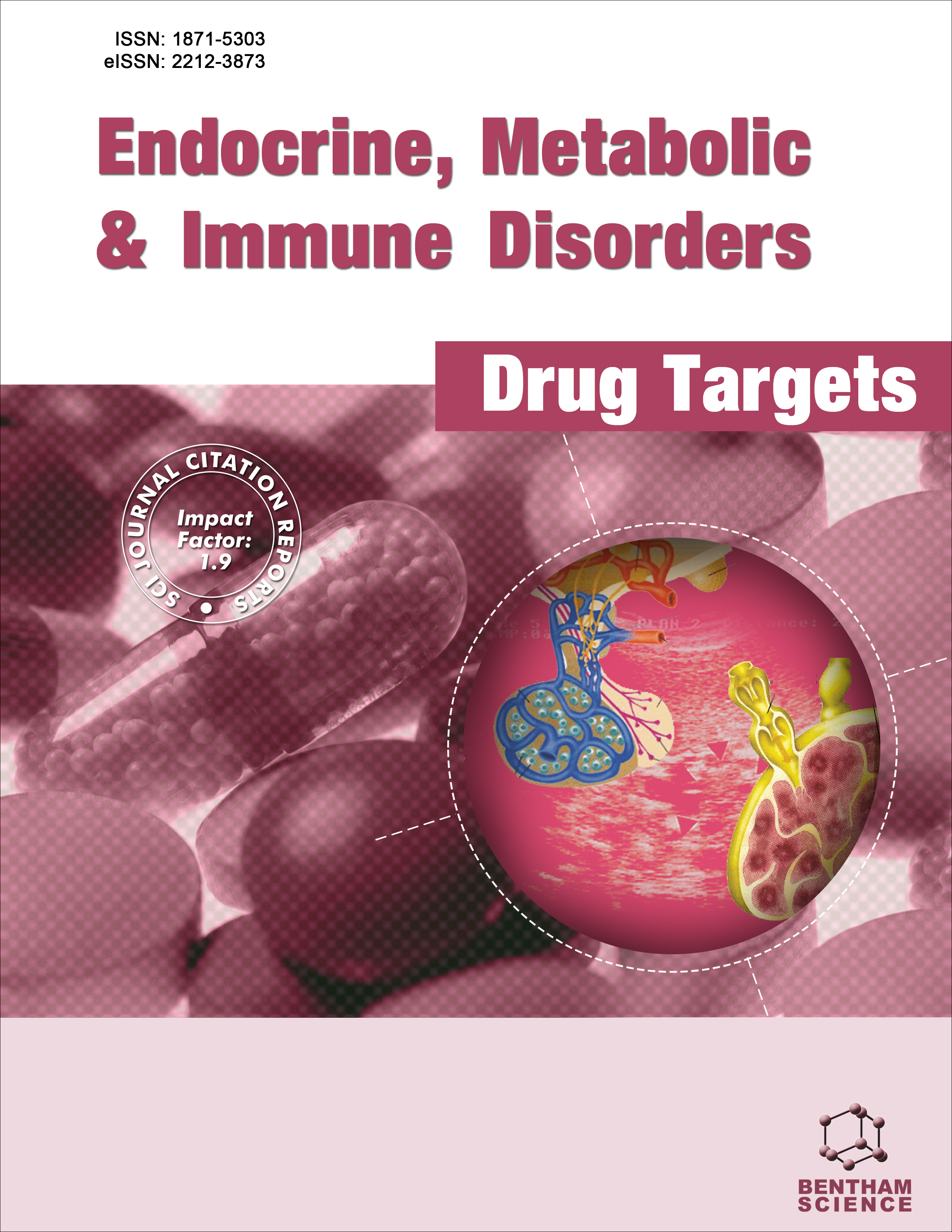Endocrine, Metabolic & Immune Disorders-Drug Targets - Volume 21, Issue 12, 2021
Volume 21, Issue 12, 2021
-
-
Multiple Rebound-Associated Vertebral Fractures after Denosumab Discontinuation: Is Prompt Antiresorptive Therapy Always Recommended,Even When the Risk of Fracture Seems Low? A Case Report
More LessAuthors: Giangiacomo Osella, Soraya Puglisi, Anna Alì, Giuseppe Reimondo and Massimo TerzoloBackground: Non-osteoporotic patients with endocrine-sensitive breast cancer are often treated with denosumab only during the anti-aromatase treatment, and when the anti-aromatase therapy is discontinued, no antiresorptive drug is prescribed. This case report clearly shows how even a patient with a low risk of fractures could have multiple rebound vertebral fractures after denosumab discontinuation. Case Presentation: We report the case of a 60-year-old woman who suffered from multiple vertebral fractures only seven months after discontinuation of denosumab that had been administered to prevent bone loss related to three years of aromatase inhibitors as adjuvant therapy for breast cancer. No antiresorptive therapy was prescribed at the time of denosumab discontinuation, assuming that the patient had a low absolute risk of fracture after the withdrawal of the aromatase inhibitor. Conclusion: This case underlines the relative irrelevance of bone mineral density and clinical algorithms in predicting the risk of rebound-associated vertebral fractures after denosumab discontinuation and the strong recommendation to always switch to another antiresorptive therapy (such as zoledronic acid) immediately at the time of denosumab discontinuation.
-
-
-
A Case Report of Latent Autoimmune Diabetes Arising After Isotretinoin Treatment: Real Association or Coincidence? A Hypothesis on Pathophysiology
More LessBy Yusuf BozkuşBackground: Latent autoimmune diabetes in adults (LADA) is the most common form of adult-onset autoimmune diabetes. Isotretinoin is a very effective treatment for severe acne. There are various reports on the effect of isotretinoin on autoimmunity. We present a case of LADA, probably related to isotretinoin treatment. To the best of our knowledge, this case was the second case of LADA that occurred after isotretinoin treatment. Here we discuss a hypothesis on the pathophysiology of how isotretinoin can induce LADA. Case Presentation: A 55-year-old female was diagnosed with type 2 diabetes mellitus (T2DM) one month after the end of a nine-month isotretinoin treatment period. At the time of diagnosis, the patient’s fasting blood glucose level was 257 mg/dL and HbA1c level was 10.3%. Then, she was followed-up for T2DM for two years. Since the patient did not comply with classical T2DM characteristics and C-peptide level was 0.4 ng/ml (0.78-5.18), autoantibody test was performed. The patient was found positive for anti-glutamic acid decarboxylase antibody (>2000 IU/mL). Her oral antidiabetic drug treatment was discontinued and insulin degludec and insulin aspart therapy was started. Three months after this adjustment, HbA1c level decreased to 7.2%. Except 25-hydroxycholecalciferol which was low (10.9 ng/mL), all other laboratory parameters were within normal range. Conclusion: Isotretinoin is known to have some immunomodulating effects. There are some case reports on the relationship between isotretinoin and autoimmune diseases. The negative immune environment that developed due to the long-standing moderate-severe VitD deficiency may have taken a turn toward autoimmunity upon isotretinoin treatment. This hypothesis on how isotretinoin can cause autoimmune diabetes needs to be validated.
-
Volumes & issues
-
Volume 26 (2026)
-
Volume 25 (2025)
-
Volume 24 (2024)
-
Volume 23 (2023)
-
Volume 22 (2022)
-
Volume 21 (2021)
-
Volume 20 (2020)
-
Volume 19 (2019)
-
Volume 18 (2018)
-
Volume 17 (2017)
-
Volume 16 (2016)
-
Volume 15 (2015)
-
Volume 14 (2014)
-
Volume 13 (2013)
-
Volume 12 (2012)
-
Volume 11 (2011)
-
Volume 10 (2010)
-
Volume 9 (2009)
-
Volume 8 (2008)
-
Volume 7 (2007)
-
Volume 6 (2006)
Most Read This Month


